Book Resource List

Nobody Wants to Talk About It:
Race, Identity, and the Difficulties in Forging Meaningful Conversations
by Michael Sidney Fosberg
For the past fifteen years, Michael Fosberg has performed an autobiographical one-man play at middle & high schools, colleges, corporations, government agencies and community organizations across the country. The play chronicles the journey to find his biological father and discovering his family’s African-American roots. Having been raised thinking he was White, this sudden discovery of his Black roots had implications beyond simply his own identity. By performing both Black & White characters, intentionally incorporating suggestive racial stereotypes, candidly examining passing, covering, White privilege and code switching, he challenges audiences to openly discuss these issues while also acknowledging their common bonds. In both his show and memoir, INCOGNITO: An American Odyssey of Race and Self-Discovery, published in 2011, he purposefully sets a course to engage people in meaningful conversations about how we see ourselves and others, and the ways in which we do and don’t talk about race & identity. In Nobody Wants to Talk About It, Michael shares stories of his travels across the country to provoke conversations about race & identity. His 15+ years of fostering constructive dialogue lead him to craft seven helpful tools to navigate difficult conversations around issues of race and identity. The book also includes the script of his one-man play Incognito, suggestions for creating space for meaningful dialogue, resource materials and more.
Copies of the book may be purchased online here. Michael Fosberg will be selling and signing copies at the event after each showing.
INCOGNITO:
An American Odyssey of Race and Self-Discovery
by Michael Sidney Fosberg
Imagine discovering you are not the person you thought you were. That you have a family, a history, an ethnicity you never knew. How would this discovery impact your life, the lives of those around you, your vision of yourself and society?
Michael Fosberg grew up in a white working-class family outside of Chicago, raised by his biological mother and adoptive father. In his early thirties, his parents divorced, setting off a series of discoveries that shake his foundation, and force him to take a closer look at the person he thought he was. Armed with only a name and a city, he sets out to track down his biological father, stumbling upon him in a miraculous first phone call. During the call Michael learns “a couple of things I’m sure your mother never told you.”
Copies of this book are available online here.

Additional Book Resources
Mr. Alvin Blount, archivist and Becoming Beloved Community Initiatives Coordinator for the Episcopal Diocese of East Tennessee, has gathered a list of book and video resources for children, youth, and adults spanning racial, gender, and sexual identity.
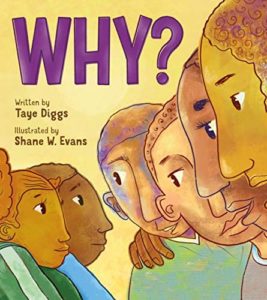
Diggs, T. (2022). Why?: A Conversation About Race. Feiwel & Friends.
Diggs has collaborated with Shane Evans, illustrator, on this picture book about racial injustice. Why? is a timely story posing questions and conversations between children of color and their adult caretakers.
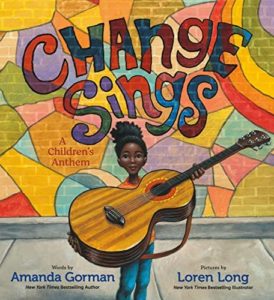
Gorman, A. (2021). Change Sings: A Children’s Anthem. Viking Books for Young Readers.
New York Times bestselling author and presidential inaugural poet, Amanda Gorman with 1# NYT bestselling illustrator, Loren Long, have collaborated on this picture book and musical journey for children that teaches anything is possible when we join our voices together for positive change in communities, big or small.
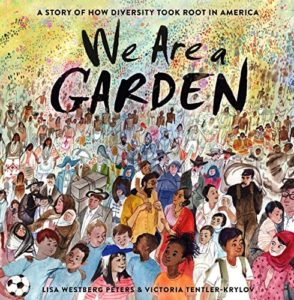
Peters, L. W. (2021). We Are a Garden: A Story of How Diversity Took Root in America. Schwartz & Wade.
This picture book shows how generations of different migrants from all over the world made their homes in North America. They come from tribes and families fleeing from hunger, and the enslaved who took root here and make up a colorful “garden” of families and friends who consider themselves Americans.
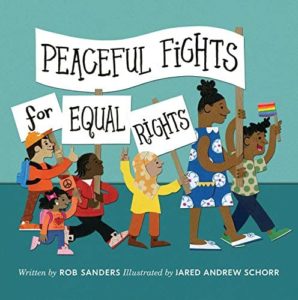
Sanders, R. (2018). Peaceful Fights for Equals Rights. Simon & Schuster Books for Young Readers.
Using the alphabet, the author gives readers a direct call to action to help readers learn how important it is to take a stand at an early age.
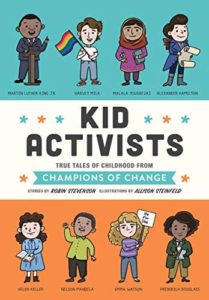
Stevenson, R. (2019). Kid Activists: True Tales of Childhood from Champions of Change. Quirk Books.
Many activists began activism during their childhood. Kid Activists tells these Childhood stories with cartoon illustrations about Alexander Hamilton, Rosa Parks, Harvey Milk, Ruby Bridges, Susan B. Anthony, and many more.
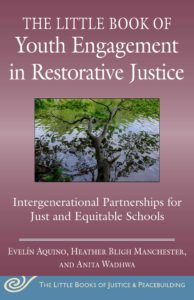
Aquin, E. (2021). The Little Book of Youth Engagement in Restorative Justice. Good Reads.
To promote youth engagement in restorative justice, the reader will be treated to stories regarding the varied racial identities of the authors that sparked interest in this work (White, Latinx, and South Asian), and case studies from different parts of the country of youth led justice programs.
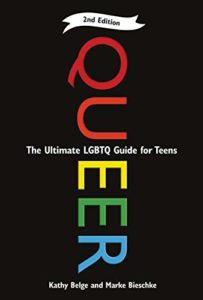
Bieschke, M. (2019). Queer, 2nd Edition: The Ultimate LGBTQ Guide for Teens. Zest Books.
Life for teens who identify as LGBTQ can be very difficult when faced with the possibilities of coming out, dating, and the challenges of being accepted by family and friends. Belge and Bieschke have written this humorous but honest guide to assist teens with coming out and navigating their social lives, in addition to help with challenges of homophobia.

Colbert, B. (2021). The Voting Booth. Disney-Hyperion.
This is a timely resource regarding voting and voter suppression and an entertaining story about teen relationships and activism.
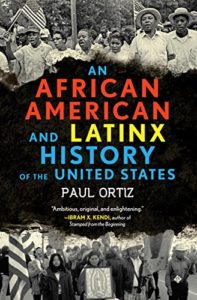
Ortiz, P. (2018). An African American and Latinx History of the United States. Beacon Press.
Ortiz draws from the experiences of African American and Latinx people to show their shared struggle for civil rights in a span of over two hundred years, and places them front and center in the transformation of US history.
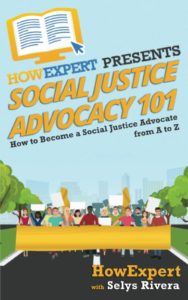
Rivera, S. (2019). Social Justice Advocacy 101: How to Become a Social Justice Advocate from A to Z. Hot Methods.
This resource is a handy guide to help readers get started on a journey to social justice advocacy. It gives an overview of how our government works, types of social justice events, and a glossary.
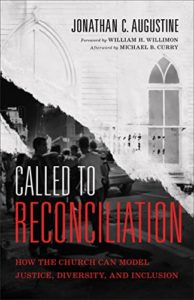
Augustine, J. C. (2022). Called to Reconciliation: How the Church Can Model Justice, Diversity, and Inclusion. Baker Academic.
This source was written by Jonathan “Jay” Augustine, a nationally recognized speaker, church leader, reconciliation scholar, law professor, and senior pastor of St. Joseph AME Church in Durham, NC. The author challenges us to position the church as a model for reconciliation, justice, diversity, and inclusion in our parishes and society at large. He maps racial progress through his exploration of civil reconciliation from the era of civil rights to the Black Lives Matter movement. Augustine’s interdisciplinary scholarship is deep intheology, with a foreword by Retired Bishop, William Willimon, United Methodist Church, and an afterword by The Most Rev. Michael B. Curry, Presiding Bishop of The Episcopal Church. A must-read for clergy, lay leaders, and any citizen interested in social justice!
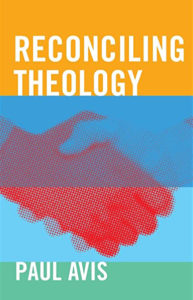
Avis, P. (2022). Reconciling Theology. SCM Press.
Written by leading thinker on Anglicanism and ecumenism, Paul Avis, this work explores the issues of argument, debate, conflict, and search for common ground to work on agreement and harmony. His vision moves the church beyond liberal or orthodox viewpoints.

Boesak, A. & Curtiss, P. D. (2012). Radical Reconciliation: Beyond Political Pietism and Christian Quietism. ORBIS.
As so many reconciliation initiatives possibly fail due to stopping short of completing the work required, this resource calls for reconciliation that is radical and goes to the root of issues. Radical Reconciliation calls out Christians who practice a form of political pietism, favoring the rich and powerful and helping to deprive the powerless of justice and dignity.

Brown, L. (2013). Belles of Liberty: Gender, Bennett College, and the Civil Rights
Movement in Greensboro, North Carolina. Women and Wisdom Press. Greensboro, NC, is famous for its Civil Rights history in 1960 and similar integration activities soon followed in other cities around the country. Four male students from North Carolina A & T State University are credited for this event and are known as the “A & T Four,” however, historians have overlooked that the initial Greensboro Sit-in was carefully planned on the campus of Bennett College, one of this country’s two HBCUs for women. “Bennett Belles,” as they are affectionately called, sat down at the Woolworth’s lunch counter, marched, and were incarcerated at various times from 1960-1963 with the support of their president and civil rights activist, Dr. Willa B. Player. Linda Brown, Player’s niece, a Bennett alumna and published author, was one of those activists during the Movement. She has now retired from teaching at the College and has provided us with unknown facts with the help of others about where, why, and how it all started in this compelling story.
Brown, L. (Host). (2015, January 22). Bennett College & The Civil Rights Movement [Video podcast]. C-Span. https://www.c-span.org/video/?324066-1/belles-liberty

Eisenstadt, P. (2021). Against the Hounds of Hell: A Life of Howard Thurman. University of Virginia Press.
An inspiration and mentor to civil rights leaders such as Martin Luther King, Jr., Howard Thurman was an important figure to African Americans and Activists. Against the Hounds gives the theologian, activist, feminist, environmentalist, and first significant African American pacifist the biographical treatment that he deserves. He referred to fear, deception, and hatred as “hounds of hell,”—what so often marginalized African Americans and disinherited people of the world.
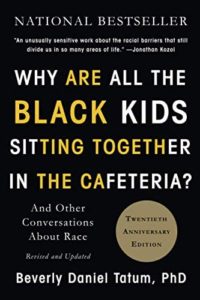
Tatum, B. D. (2017). Why Are All the Black Kids Sitting Together in The Cafeteria?: And Other Conversations About Race. Basic Books.
This is a New York Times bestseller regarding the psychology of racism that shows how to bypass the reluctance to discuss racial issues. Tatum received the American Psychological Association Award for Outstanding Lifetime Contributions to Psychology. She serves as Interim President of Mount Holyoke College and is President Emerita of Spelman College.

Meeks, C. & Stroupe, N. (2019). Passionate for Justice: Ida B. Wells as Prophet for Our Time. Church Publishing.
Born enslaved, Ida B. Wells was a churchwoman, champion for justice, women, and the poor. Both authors of this resource are from very different backgrounds and they have dedicated their work to developing initiatives toward justice, equity, and mercy. All institutions will find this book useful, especially houses of worship.
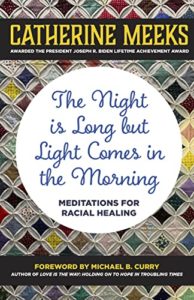
Meeks, C. (2022). The Night is Long but Light Comes in the Morning: Meditations for Racial Healing. Morehouse Publishing.
Meeks has a national reputation of fighting tirelessly to bring needed awareness of racism and ways to combat it. She serves as the Executive Director of the Absalom Jones Center for Racial Healing housed in Atlanta, GA. The Night is Long is a meditative guide for the weary and frustrated, while including ways to work through fear, rage, healing, and looking toward the future.
